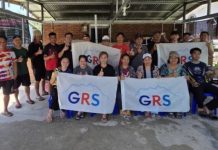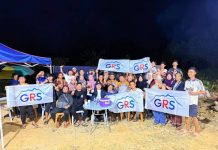KOTA KINABALU: A soon-to-be developed Internet of Things (IoT) application system is expected to address the problem of low livestock survival rates, particularly in the aquaculture industry in Sabah.
“The use of this IoT application in fish farming is also in line with the government’s desire to adopt the Industrial Revolution 4.0 (IR4.0) in various key sectors throughout the region,” said Deputy Chief Minister Datuk Seri Panglima Dr Jeffrey Kitingan.
Kitingan, who is also the Agriculture and Fisheries Ministers, said this after witnessing the signing of a research agreement between Ko-Nelayan and Universiti Malaysia Sabah (UMS) to conduct research on the use of IoT to monitor and control water quality in aquaculture projects.
Fish farming is a key component emphasised in the research agreement which includes the design, development, analysis and testing of equipment capable of reading changes in water parameters that affect and evaluate changes in fish behaviour.
“The collaboration between UMS and Ko-Nelayan is expected to solve some problems in the field of aquaculture fisheries, particularly in cage farming, pond farming and ‘Pen Culture’.
“Using IoT applications, we hope the productivity of aquaculture fisheries will improve, increasing farmer income,” he said.
The Internet of Things for Smart Aquaculture is expected to provide information about water suitability to ensure the safety of livestock.
Kitingan said the use of technology also aims to rejuvenate the industry by inviting more young farmers to venture into in the Aquaculture Fisheries industry sector because it will no longer be viewed as a back-breaking industry but rather one that is driven by technology.
“As the first step, the Tuaran Ko-Nelayan Fish Breeding Project has been chosen for the Data Collection System Development based on IoT which will create a smart monitoring and control system in livestock management.
“If this works, we will work to make this system available to our farmers throughout Sabah,” he said.
Kitingan said the Sabah government through his ministry always supports the efforts of government agencies and departments to collaborate with institutions of higher learning, particularly UMS which has expertise in a variety of fields, to increase productivity of aquaculture fisheries using modern systems.
“I have high hopes that this research collaboration will achieve its goals while also having a significant impact on the aquaculture fisheries industry, especially in Sabah,” he said.-pr/BNN






